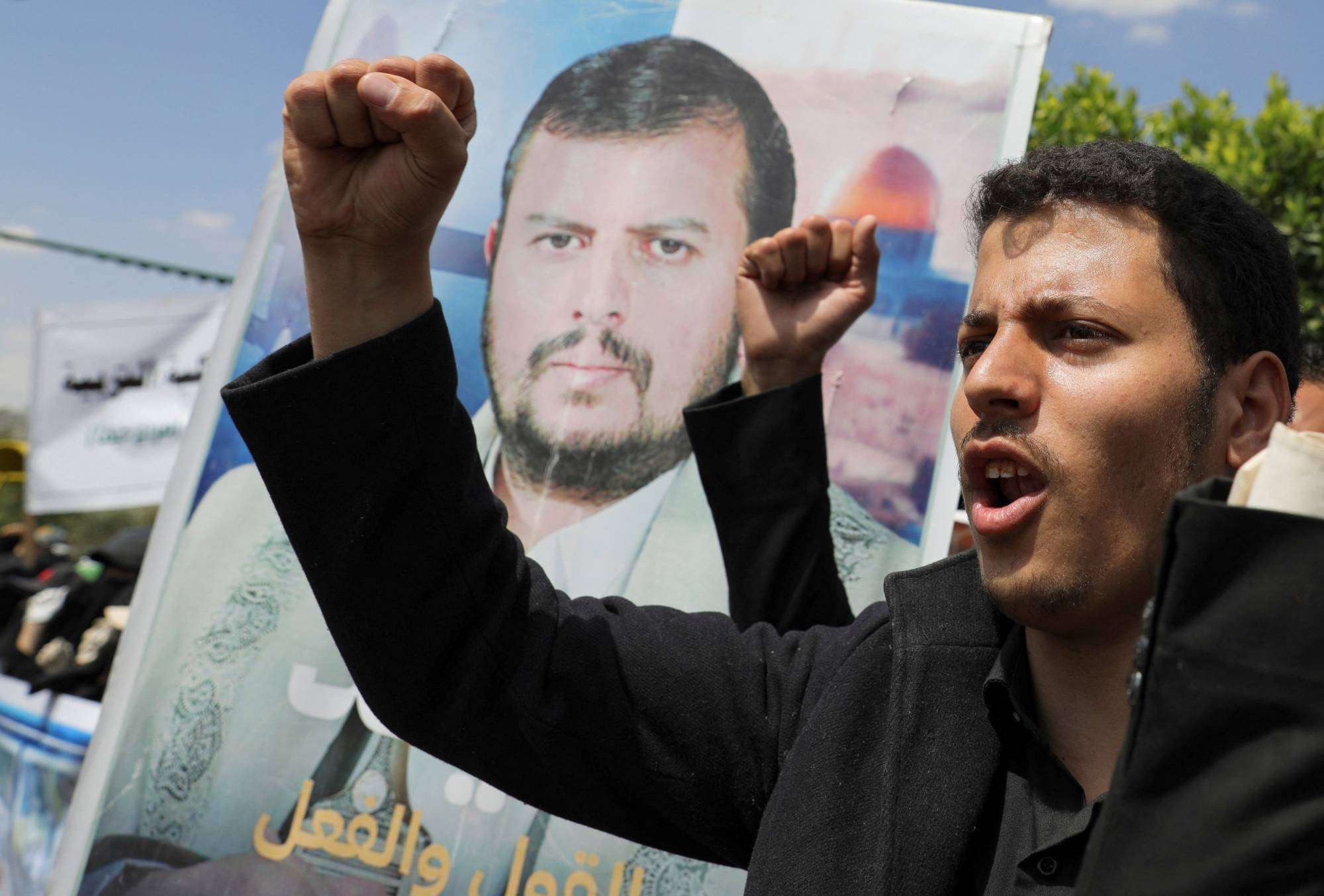


Barran Press
A recent study has examined the likelihood of Israel conducting a military strike in Yemen against leaders of the Houthi group, which is internationally designated as a terrorist organization. This analysis comes amid rising regional tensions between Israel and Iran.
Released by the Al-Mokha Center for Strategic Studies on Saturday, October 5, 2024, the study, obtained by "Barran Press," outlines various factors influencing the potential for such strikes.
Key among these factors, according to the study, are “the trajectory of Israel's ground operations in southern Lebanon, the ongoing Houthi attacks on Israel, and the nature of these attacks should they occur.”
The study suggests that an Israeli strike could serve as retaliation for the repeated assaults carried out by the Houthi group against Israel, including attacks on Ben Gurion Airport and several vessels in the Red Sea.
The objective of such a strike would be to deter the Houthis from continuing their assaults, restore Israel's damaged deterrent image, and assert its dominance in the region, as outlined in the research paper.
The study also posits that if Israel succeeds in these operations, it may pave the way for targeting other Iran-backed groups, including the Houthis in Yemen.
However, it notes that American pressures could influence the nature of any potential strikes, given the U.S. administration's desire to contain tensions and prevent a large-scale regional war. The Houthis are part of Iran-supported regional alliances aiming to expand confrontation fronts with Israel on multiple levels.
Regarding potential targets, the paper indicated that operations might focus on military sites and Houthi weapon storage facilities, without ruling out the targeting of prominent leaders within the group.
The study concluded that the likelihood of Israel launching retaliatory strikes against the Houthis would be minimal if Hezbollah recovers and Israel becomes entangled in a protracted war in southern Lebanon, alongside the ongoing conflict in Gaza.
Additionally, if Iran escalates its involvement and engages in reciprocal strikes with Israel, while Houthi attacks diminish and the potential damage remains limited, this would further reduce the chances of an Israeli response.
The study highlighted that the opportunities for Israeli operations against the Houthis could increase if Israel achieves military success over Hezbollah and if the likelihood of direct military engagement with Iran decreases. Conversely, if widespread conflict erupts in the region and U.S. warships suffer damage from Houthi attacks, the scenario may shift.
Should strikes occur, they would likely target economically significant interests, similar to the previous attacks on the port city of Hodeidah. The study speculated that these strikes might extend to attempts to assassinate high-ranking military or political leaders within the Houthi movement, potentially even targeting the group's leader, especially if Israeli interests sustain significant damage.
Following Israel's elimination of the Secretary-General of Hezbollah and several of his civil and military leaders, Houthi leaders are increasingly concerned that they may be the next target for Israeli actions.
With the exception of the group's leader, Abdul-Malik Al-Houthi, whose whereabouts remain secretive as he moves between Saada and Sana'a, other military leaders within the group have freely traveled within their controlled areas, particularly during the recent ceasefire that commenced with a UN truce in April.
According to sources close to the group, Houthi leaders utilize mobile phones or landline communications due to the presence of telecom companies in their regions. However, these sources indicate that the situation has changed dramatically following the elimination of most of Hezbollah's leadership.
These insiders suggest that although the Houthi leaders may decide to escalate their missile and drone launches toward Israel, they are acutely aware that they could soon become the primary target, especially after the failure of Iranian-backed Iraqi factions to effectively strike Israel in the wake of Hezbollah's setbacks.